Oct - 13 - 2023
Egypt, is the land of the Pharaohs, the cradle of civilization, and a vibrant nation situated at the crossroads of Africa and the Middle East. From ancient wonders to modern delights, Egyptian culture is a mesmerizing blend of traditions, art, and customs passed down through generations.
Overview about Egypt
Egypt, a land steeped in history and ancient wonders, holds an enduring allure for travelers and history enthusiasts alike. Nestled in northeastern Africa, with a touch of its territory extending into Asia, Egypt boasts an incredible heritage dating back to the time of pharaohs and pyramids. The cultural tapestry of Egypt, woven with captivating traditions, flavorsome cuisine, and warm hospitality, weaves a mesmerizing narrative that beckons visitors to explore its timeless treasures and immerse themselves in the mysteries of an awe-inspiring civilization.
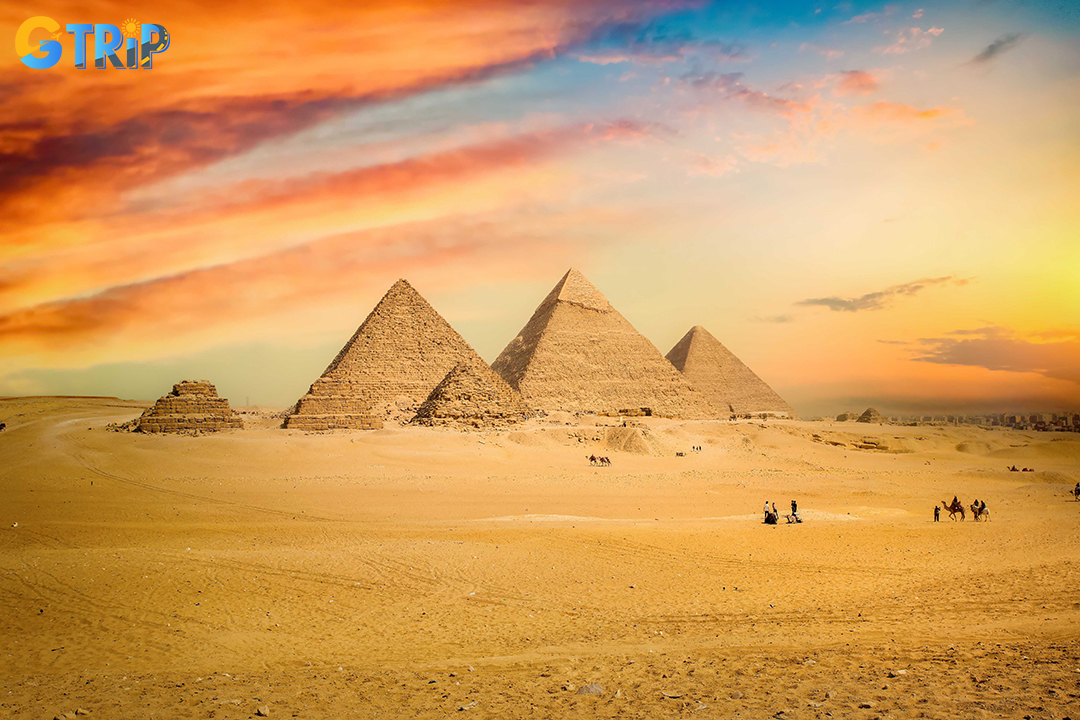
Egypt is one of the world's oldest civilizations
Egyptian Culture
Rooted in ancient traditions and beliefs, contemporary Egyptian culture has evolved and adapted over time, combining elements from various civilizations that have influenced the region.
Ancient heritage
Ancient Egypt's heritage is a dazzling tapestry woven from the remarkable achievements of one of the world's oldest civilizations. Flourishing along the banks of the Nile River for over three millennia, ancient Egyptians left an indelible mark on human history.
Their awe-inspiring architectural wonders, including the iconic pyramids of Giza, intricate temples, and colossal statues, stand as enduring symbols of their advanced engineering and religious devotion. The hieroglyphics, a sophisticated writing system, and the enigmatic tombs filled with treasures reflect their profound beliefs in the afterlife and the quest for immortality.
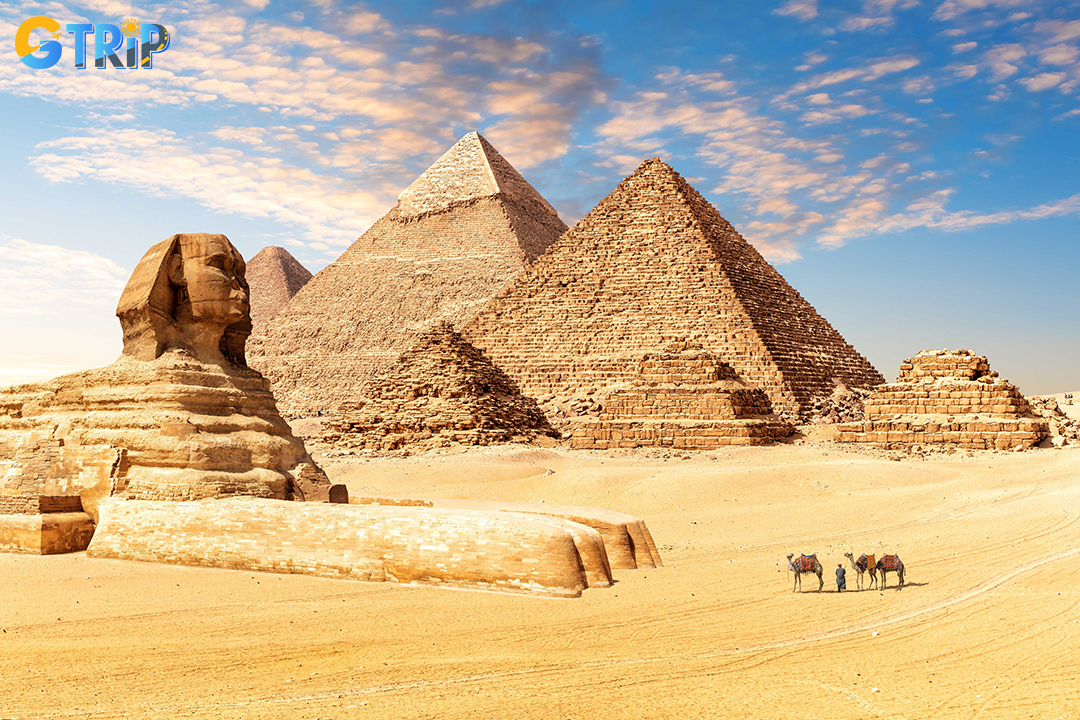
Ancient Egyptians' achievements are awe-inspiring
Religion in Egyptian culture
Religion has been an integral and profound aspect of Egyptian culture throughout its long history. Ancient Egyptians practiced a polytheistic religion, worshipping a vast pantheon of gods and goddesses that represented different elements of nature, human characteristics, and cosmic forces.
The pharaoh considered a divine ruler and intermediary between the gods and the people, held immense religious significance. Complex rituals, temples, and grand monuments, such as the pyramids, were constructed to honor the gods and ensure the continuity of life beyond death.
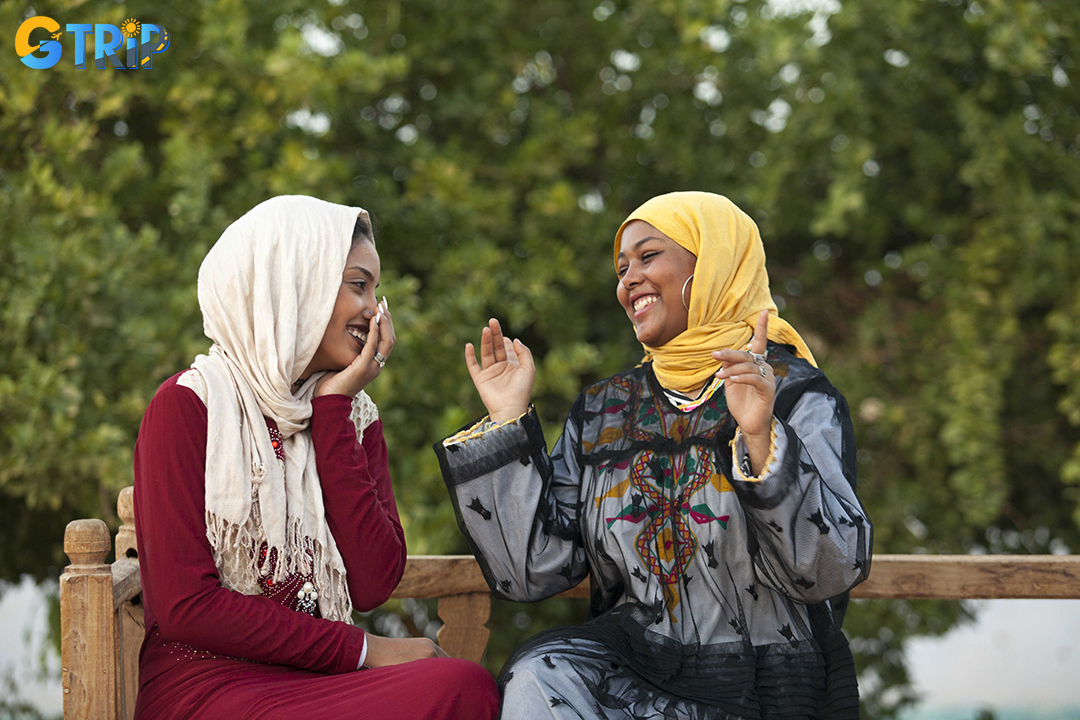
Religion holds a significant place in Egyptian society
Family and social structure
Families in Egypt are typically close-knit and multigenerational, with extended family members often living together or in close proximity. Elders play a significant role in decision-making and are often regarded as the pillars of wisdom and guidance. Men are typically seen as the breadwinners and women take on domestic responsibilities. Community gatherings and celebrations are common, reinforcing the importance of social bonds and reinforcing a collective identity.
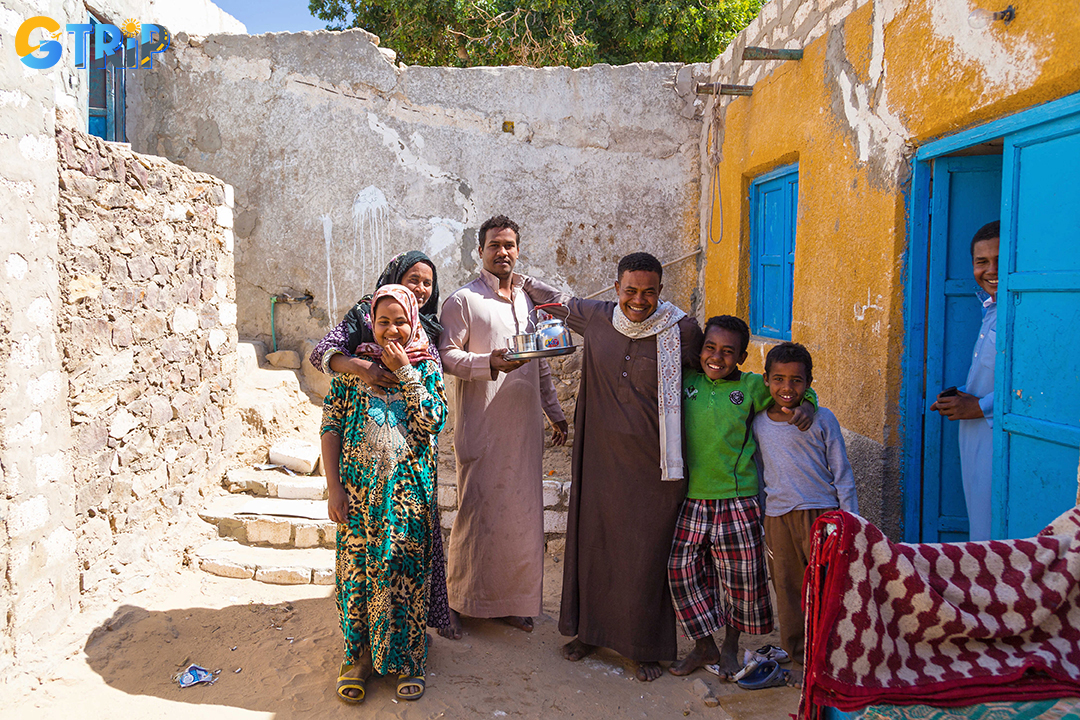
Families in Egypt are typically multigenerational
Language in Egypt
The official language of Egypt is Arabic, and Egyptian Arabic, with its unique dialect, is the most commonly spoken and understood form of the language in the country. Modern Standard Arabic (MSA) is used in formal settings, such as education, media, and government, serving as a unifying linguistic force across the Arab world. Additionally, English is widely spoken, especially in urban areas and among the younger generation, due to its prominence in education and as the language of international communication.

English is widely spoken in Egypt
Eating culture
Egyptian culture places great importance on communal dining experiences, making meals a cherished social occasion. When eating, it is common for family members and friends to gather around a shared table, fostering a sense of togetherness and unity. Hospitality is a fundamental value, and guests are warmly welcomed and offered a wide array of dishes to enjoy.
Egyptian cuisine, characterized by a rich blend of flavors and aromatic spices, reflects the country's diverse cultural influences and regional specialties. Meals often begin with a variety of appetizers, called "mezze," which can include dishes like hummus, baba ghanoush, and falafel. The main course typically features a variety of dishes, such as koshari (a mix of rice, pasta, lentils, and chickpeas) or grilled meats served with flavorful sauces. Bread is an essential part of every meal, and it is customarily used to scoop up food instead of utensils.
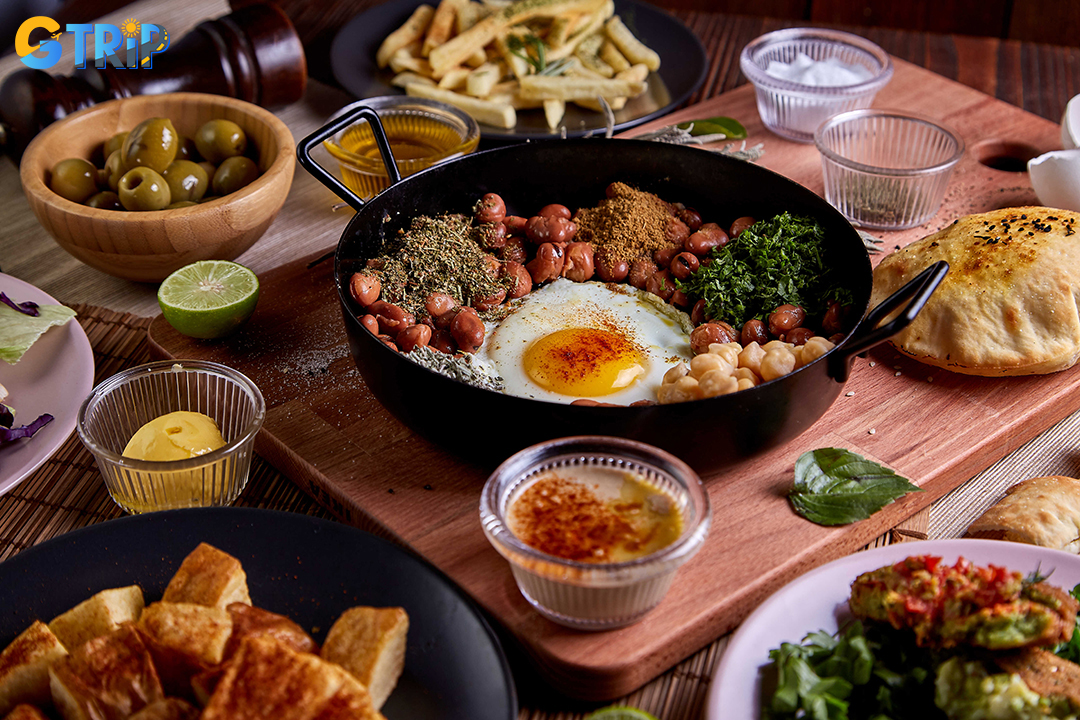
Egyptians typically eat with their hands
Egyptian clothes
In rural areas and among some older generations, you may still find people wearing traditional attire. In urban areas and among the younger population, people often dress similarly to those in other parts of the world. During religious occasions or visits to mosques, it is respectful to dress more modestly, covering shoulders and knees for both men and women.
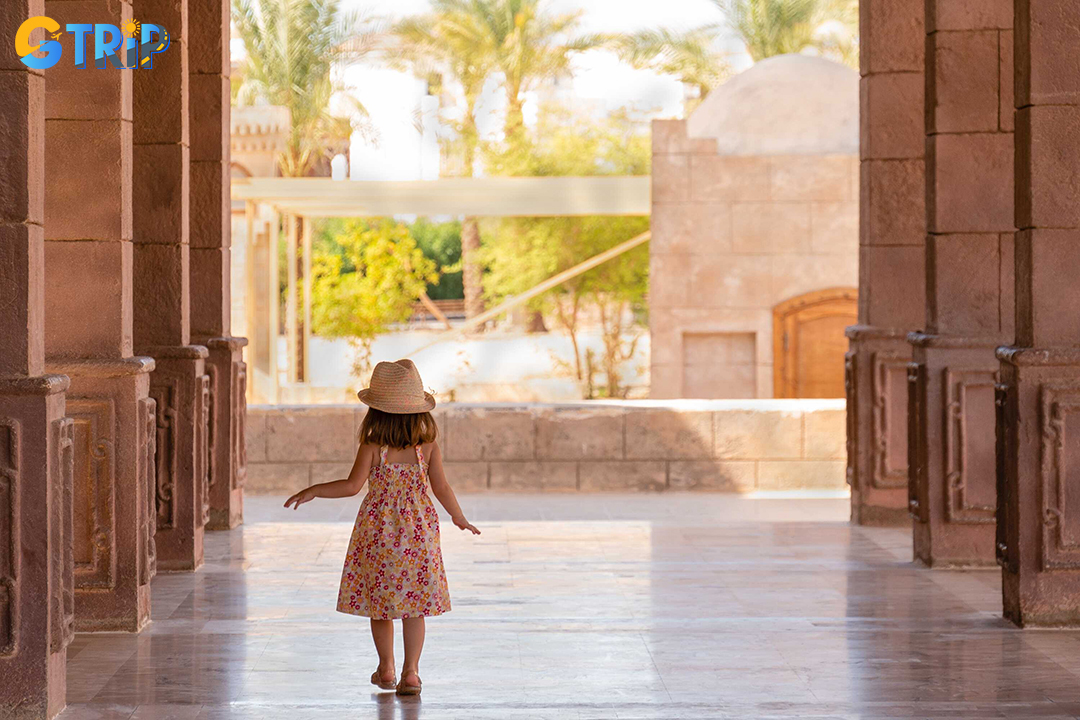
In urban areas, Western-style clothing is prevalent
Music and dance
Traditional Egyptian music is deeply rooted in the region's history and is characterized by the hypnotic melodies of instruments such as the oud, qanun, and tabla. Egyptian dance is an enchanting art form that showcases the country's cultural diversity and spiritual expression. Belly dancing, with its graceful movements and intricate hip isolations, is one of the most well-known and celebrated dance forms in Egypt.

Music and dance are vibrant of Egyptian culture
Festivals and celebrations
Festivals and celebrations hold a special place in the vibrant culture of Egypt. Islamic festivals, such as Ramadan and Eid al-Fitr, are widely celebrated, with families coming together to observe the month of fasting and culminating in feasts and communal prayers. Coptic Christians also mark their religious events, including Christmas and Easter, with colorful processions and church services. The famous "Moulid" festivals honor the birthdays of revered Islamic saints and draw crowds to lively street parades, religious rituals, and folk performances.

Egypt is a land of vibrant festivals and celebrations
Hospitality
From the bustling cities to the rural villages, visitors to Egypt are greeted with open arms and a genuine eagerness to welcome them into their homes and hearts. Inviting guests for a meal or a cup of tea is a common practice, and Egyptians take pride in offering delicious traditional dishes, showcasing their rich culinary heritage. The spirit of hospitality extends beyond homes, as strangers are often treated like long-lost friends, with locals readily offering assistance and guidance to travelers exploring their country.
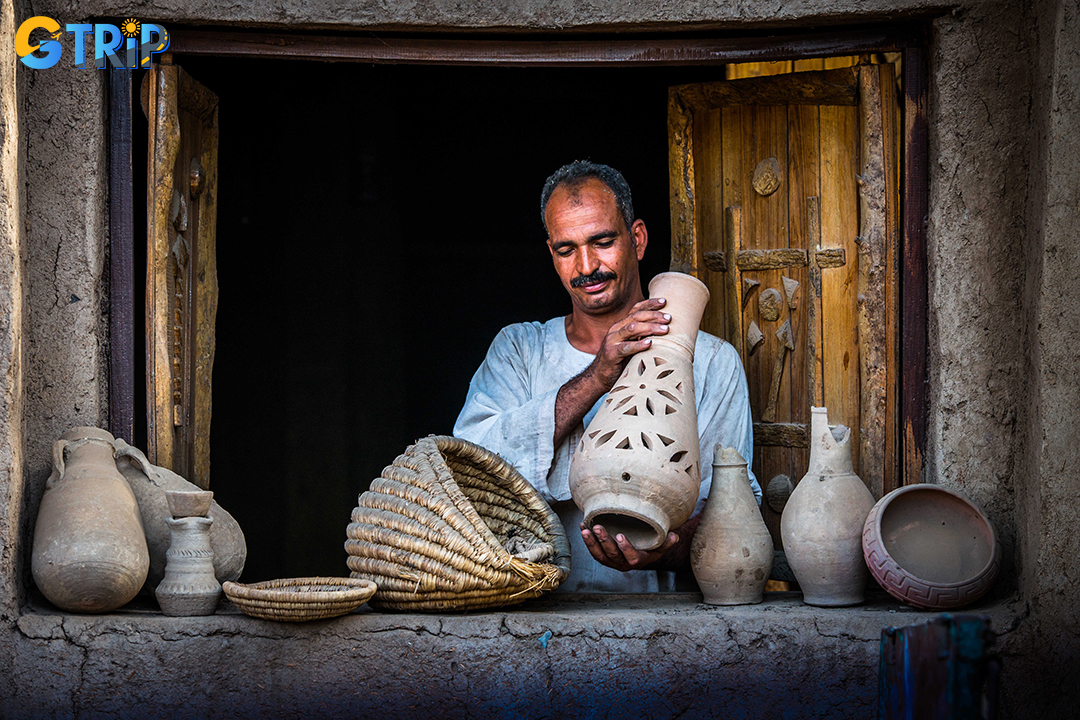
Hospitality is an ingrained aspect of Egyptian culture
Egyptian culture is a tapestry woven from ancient traditions and modern influences. Its historical significance, captivating art, flavorful cuisine, lively festivals, and warm hospitality make Egypt a truly remarkable and unforgettable destination. So, plan your trip to Egypt today and immerse yourself in the wonders of this extraordinary nation!


